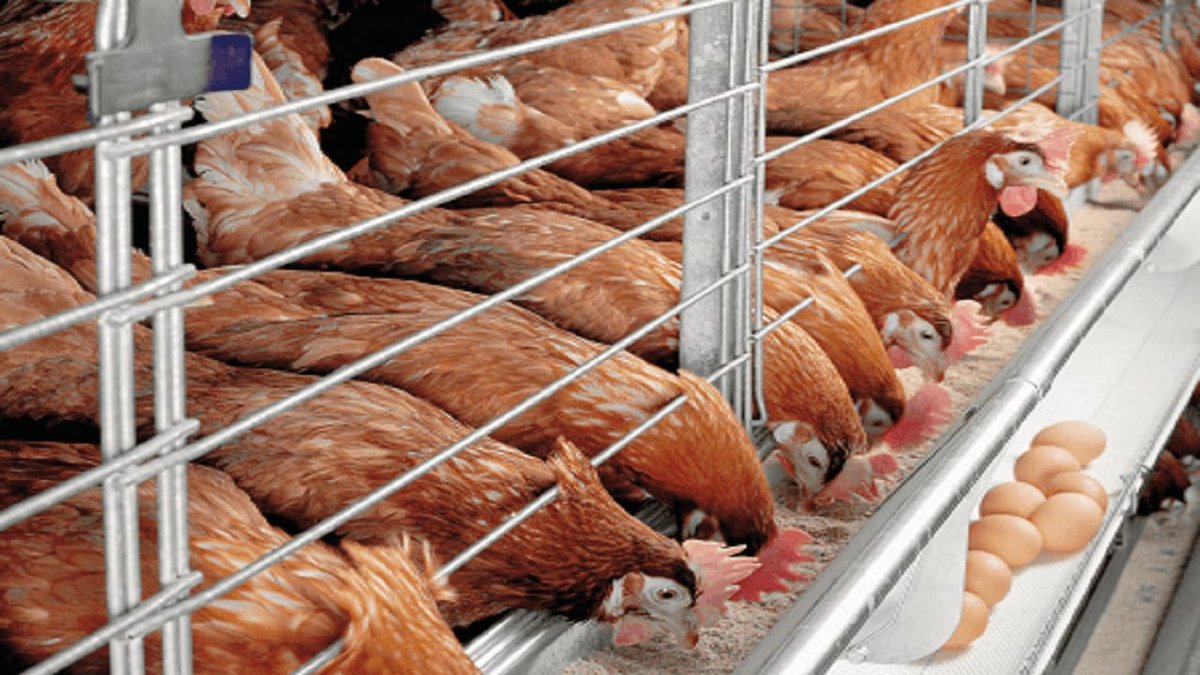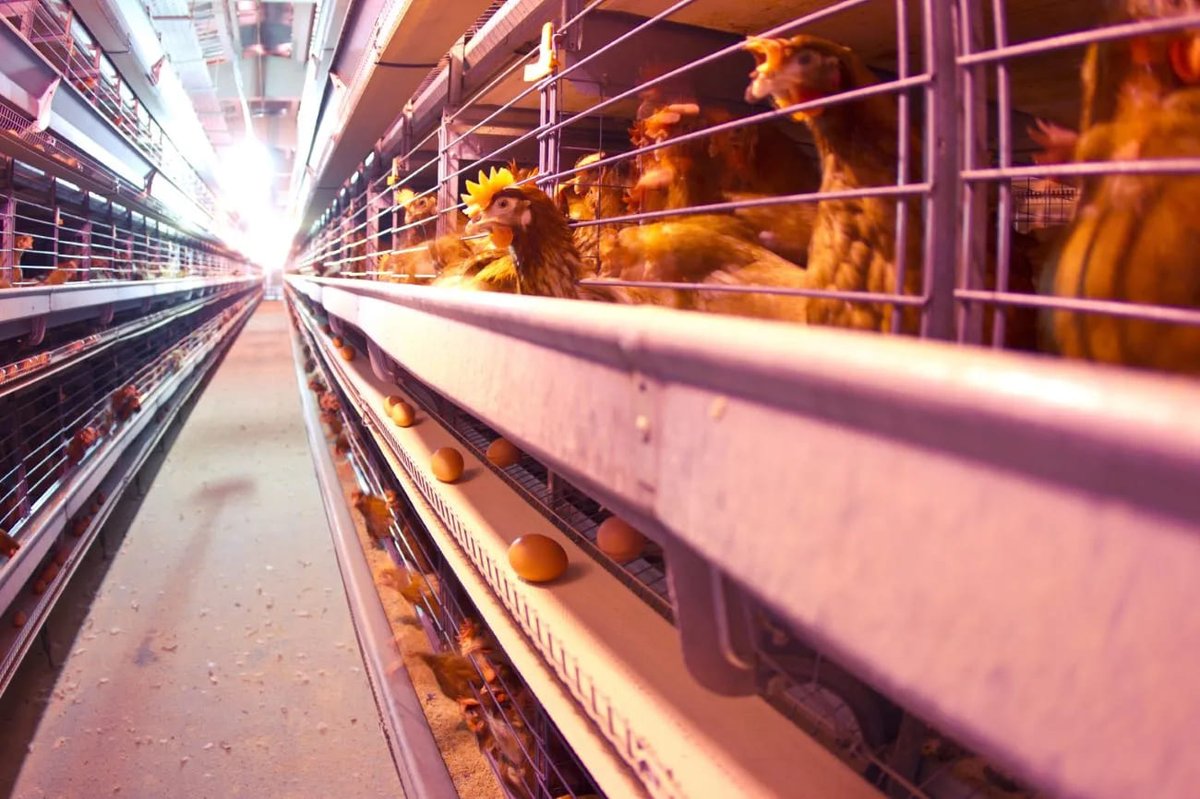Are you looking for a business in Nigeria with quick returns? Many entrepreneurs are asking how to start broiler farming in Nigeria, and for good reason. Broiler farming might be the perfect answer. Unlike other farming, broilers can be ready for the market in just 6 to 8 weeks. This makes it one of the fastest ways to make money in agriculture. This guide is a complete plan for broiler farming for beginners, showing you exactly how to start broiler farming in Nigeria and make a good profit. This guide provides a complete blueprint, turning your ambition into a profitable reality.
Key Takeaways
In This Guide, You Will Learn:
- The exact cost to raise 100 broilers in 2025.
- A 6-step plan to set up your farm and raise healthy birds.
- How to calculate your real profit margin.
- Strategies to manage high feed costs and other challenges.
How Many Chickens Should a Beginner Start With?
When you are just starting, it’s wise to not jump in with too many birds. The best way is to start small and learn the ropes before you invest a lot of money.
The Safe Start: 50-100 Birds
We strongly recommend that you start with a small, manageable number, like 50 or 100 broilers. This number is large enough for you to learn but small enough to manage without getting overwhelmed.
Why Starting Small is the Smartest Move
There are good reasons for this strategy:
- Lower Initial Cost: Starting small means you don’t need a huge amount of money for chicks, feed, and housing. This reduces your financial risk.
- A Cheaper Learning Curve: You will make mistakes; every farmer does. A mistake with 100 birds might cost you a little, but the same mistake with 1,000 birds could ruin your business before it even starts. Think of your first batch as your ‘training wheels.’
- Easier Management: It is much easier to monitor the health, feeding, and growth of 100 birds. You can give them better attention, which leads to better results.
- Lower Emotional Stress: Losing birds is painful for any farmer. Losing a few birds from a flock of 100 is a lesson. Losing hundreds of birds from a large flock can be emotionally and financially devastating.
Scaling Up: When to Grow Your Farm
After you have successfully raised and sold two or three batches of 100 birds, you will have the confidence and experience to expand. You can then plan to scale up to 200, 500, or even 1,000 birds. By then, you will understand the real costs, the challenges, and the market.
Starting small gives you the foundation to build a big, successful business. Now that you’ve decided on your starting number, let’s talk about the money you’ll need.
Cost to Raise 100 Broilers in Nigeria (2025 Breakdown)
This is one of the most important questions every beginner asks. If you are serious about how to start broiler farming in Nigeria, understanding the costs is critical. The total cost of starting a poultry farm in Nigeria for 100 broilers can be between ₦450,000 and ₦600,000. The final amount depends on your location (costs are higher in cities like Lagos) and how you manage the farm.
Here is a simple table to break down the costs:
| Item | Quantity | Estimated Cost (₦) | Notes |
|---|---|---|---|
| Day-Old Chicks | 100 | ₦150,000 – ₦200,000 | Buy from reputable hatcheries like Zartech or Amo Farm. Price varies by breed and season. |
| Feed (Starter & Finisher) | 20-25 bags | ₦200,000 – ₦250,000 | This is your biggest expense (60-70%). Good feed is not cheap, but it’s worth it. Since feed is your biggest variable expense, you can use our chicken feed calculator to get a more precise, real-time estimate for your flock. |
| Vaccines & Medication | Lump Sum | ₦20,000 – ₦30,000 | Includes vaccines for Gumboro, Lasota, and dewormers. Also includes vitamins for stress. |
| Housing & Setup | One-time | ₦50,000 – ₦70,000 | This is for a simple deep litter system using wood, wire mesh, and basic roofing. |
| Equipment (Feeders, Drinkers) | One-time | ₦30,000 – ₦50,000 | You will need about 3-4 feeders and 3-4 drinkers for 100 birds. |
| Total Estimated Cost | ₦450,000 – ₦600,000 | This is a safe budget to have before you start. |
Hidden Costs to Watch Out For
Besides the main costs, you should also budget for:
- Transportation: The cost of bringing the chicks and feed to your farm.
- Disinfectants & Cleaning: Money for keeping the pen clean and hygienic.
- Utilities: Cost of electricity or kerosene for the heat lamp during brooding.
- Labor: Even if you do the work yourself, your time has value!
Equipment Supplier Checklist: After you have a clear budget, the next question is “Where can I buy everything?” Here is a quick checklist of where to get your key farm items:
- Feeders & Drinkers: Check local agricultural supply stores in your city or large markets, especially in places like Lagos and Kano.
- Heat Lamps/Bulbs: Available at most large electrical supply stores or markets.
- Wood Shavings: Connect with a local sawmill or carpenter’s workshop; you can often get it for very cheap or free.
- Disinfectants: Look for these at veterinary supply stores or poultry equipment shops.
Now that you have a clear budget in mind, let’s get into the practical, hands-on steps of setting up your farm and raising your birds.
Step-by-Step Guide on How to Start Broiler Farming in Nigeria
Here is a simple, more detailed guide to follow for success.
Step 1: Create a Simple Business Plan
Before you spend any money, you need a plan. A business plan is your roadmap. It does not have to be complicated. Just write down:
- Your Goal: What do you want to achieve? (e.g., “Raise and sell 100 broilers for the Christmas season”).
- Your Budget: How much money do you have? List all the estimated costs from the table above.
- Your Target Market: Who will you sell to? Local restaurants, hotels, families in your neighborhood, or traders in the open market in Ibadan?
- Your Sales Strategy: How will you reach your customers? Will you use WhatsApp, Facebook, or just word-of-mouth? Decide on your selling price. For a professional venture, a comprehensive poultry farming business plan for Nigeria is essential to secure loans, and you should also consider formal CAC registration.
Step 2: Set Up Your Housing (The Deep Litter System)
- Build the House: The house should protect the birds from rain, direct sun, and predators. When building the house, your first consideration is size; for more details, see our guide on how big a chicken coop should be. Next, security is paramount. Predator-proofing your coop is a critical step to protect your investment from snakes and other threats. Internally, ensure good ventilation, as poor airflow is one of the biggest coop ventilation mistakes that can overheat your flock, especially in Nigeria’s climate. Finally, proper litter management is key to how to keep a chicken coop from smelling and preventing disease.
Step 3: Sourcing Quality Day-Old Chicks
The quality of chicks you start with will determine your success.
- Find a Reputable Hatchery: This is not the place to save money. Cheap chicks from unknown sources often carry diseases that can wipe out your entire flock. Always buy from well-known hatcheries like CHI Hatchery or Agrited.
- Choose the Right Breed: The best broiler breeds in Nigeria for fast growth are Cobb 500, Ross 308, Arbor Acres, and Marshall. They are known for their good feed conversion ratio (FCR).
- How to Spot a Healthy Chick: When your chicks arrive, check them. A healthy chick is active, has dry and fluffy feathers, bright and clear eyes, and a well-healed navel.
Step 4: Brooding Management (The First 14 Days)
The first two weeks of a chick’s life are the most important. This is called the brooding period.
- Set up the Brooder: Before the chicks arrive, set up a brooding area. Use a cardboard ring (a brooder guard) to keep the chicks close to the heat source.
- Provide Heat: Broiler chicks cannot control their body temperature. You must provide a heat lamp to keep them warm. The temperature should be around 32-35°C for the first week.
- Watch the Chicks’ Behaviour: If they are all huddled together under the lamp, they are cold. If they are far away from the lamp, they are too hot. If they are spread evenly, the temperature is perfect. A common issue in young chicks is ‘pasty butt.’ If you notice this, it’s important to learn how to treat pasty butt in chicks immediately.
Step 5: Feeding for Maximum Growth
- Starter Mash (from 0 to 4 weeks): This feed has high protein to help them grow fast. A good mix often includes a high percentage of maize and soya. As you gain experience, you can explore how to make your own chicken feed, which can significantly cut costs.
- Finisher Mash (from 4 to 8 weeks): This feed helps them add weight. Always provide clean water for them 24/7 using clean drinkers. Some farmers also explore fermenting chicken feed for better health and improved nutrient absorption.
Reputable Feed Brands in Nigeria
For new farmers, relying on a good commercial brand is the safest bet. Here are a few trusted options:
- TopFeeds: A well-established brand known for its consistent quality.
- Vital Feed: Popular across Nigeria, with a good reputation for broiler growth.
- Hybrid Feeds: Another reliable option, offering specialized feeds for different stages of a broiler’s life.
- Grand Cereals: A major player in the market with a wide range of poultry feed products.
Step 6: Health, Vaccination, and Biosecurity
To prevent diseases, you must vaccinate your birds. Here is a simple vaccination schedule:
| Age | Vaccine | How to Give It |
|---|---|---|
| Day 1-3 | Lasota | Eye Drop |
| Day 10-12 | Gumboro | In Drinking Water |
| Day 21 | Lasota (Booster) | In Drinking Water |
Biosecurity is also very important. This means keeping your farm clean. Have a foot dip at the entrance and don’t allow unnecessary visitors. While many commercial farms use antibiotics, following a strict biosecurity protocol is your best defense against diseases like coccidiosis and a high mortality rate. Beyond vaccinations, proactive health management is crucial. Being prepared for common issues is part of good biosecurity.
For instance, you should know how to treat common chicken respiratory infections, which can spread quickly. To handle minor injuries or sudden illnesses, we strongly recommend you learn how to set up a chicken first-aid kit before your birds even arrive.
Step 7: Marketing and Selling Your Broilers
You have successfully raised your birds to market weight. The final step is to turn your hard work into cash.
- Start Early: Don’t wait until your birds are ready before looking for buyers. Start talking to potential customers when the birds are 3-4 weeks old.
- Know Your Options: You can sell them live (common during festivals) or sell them dressed (processed). Dressed chicken sells for a higher price but requires extra work like slaughtering, de-feathering, and cleaning.
- Find Your Customers: Your first customers are your neighbors, friends, and colleagues. Also, approach local restaurants, hotels, and markets. Use free tools like WhatsApp and Facebook to advertise.
Following these steps takes you from planning to selling. Now, let’s analyze the numbers to see how these efforts translate into profit.
Advanced Strategies and Real-World Challenges
Once you’ve mastered the basics, you’ll face new challenges and opportunities. This section covers advanced strategies for growth, profitability, and overcoming common hurdles.
How to Grow Broiler in 4 Weeks
Many people ask this question.
The Reality Check: While growing a broiler to a full table size (2.5kg) in 4 weeks is very hard for a beginner, you can get a smaller, marketable size (1.2-1.5kg) by following a strict “broiler booster” program.
The “Booster” Strategy:
- Superior Genetics: You must start with premium chicks like Cobb 500.
- High-Protein Feed: Use a very good quality starter feed with at least 23% protein.
- 24/7 Lighting: For the first 3 weeks, keep the lights on all day and night. This encourages them to eat non-stop.
- Zero Stress: The environment must be perfect. No sudden temperature changes, no loud noises, and no overcrowding.
Warning: This method is very intense and can cause health problems for the birds, like leg issues, if not managed perfectly. For beginners, aiming for a healthy 6-week growth cycle is a much safer and more profitable goal.
Rapid growth is one thing, but profit is what keeps the business alive. Let’s break down the numbers to see what you can realistically expect to earn.
Profit on 500 Chickens Nigeria
Let’s calculate the potential profit on 500 chickens in Nigeria. We will assume a 6-week growth cycle and a 95% survival rate, which means you get to sell 475 birds.
| Item | Calculation | Amount (₦) |
|---|---|---|
| Total Revenue | 475 birds x ₦5,500/bird | ₦2,612,500 |
| Total Expenses | ||
| Cost of Chicks | 500 x ₦1,800 | (₦900,000) |
| Cost of Feed | 120 bags x ₦12,000 | (₦1,440,000) |
| Vaccines & Meds | 500 birds x ₦250/bird | (₦125,000) |
| Miscellaneous | Lump Sum | (₦100,000) |
| Total Expenses | (₦2,565,000) | |
| Net Profit | Revenue – Expenses | ₦47,500 |
| Return on Investment (ROI) | (Profit / Expenses) x 100 | ~1.85% |
Analysis: As you can see, the profit margin can be very slim. This proves that success in broiler farming is not about revenue, but about cost management. The key to increasing your profit is to find ways to reduce your feed cost, maybe by making your own feed or buying in bulk from places in Ogun State or Kano.
Seeing the slim profit margin might be discouraging, but don’t worry. Many people start with very little. Let’s explore how to start broiler farming in Nigeria even if you don’t have a lot of money.
How to Start a Broiler Farm in Nigeria Without Money
Many ask this question.
The Honest Truth: Starting with absolutely zero Naira is nearly impossible. You need money for chicks and feed.
The “Low Capital” Strategy:
- Start Micro: Begin with just 10-20 birds in your backyard to dramatically lower costs.
- Use Scrap Materials: Build a simple coop from wood pallets, old roofing sheets, or other materials you can find for free.
- Seek a Family & Friends Loan: Create a simple, clear business plan (like the one in Step 1) and present it to family for a small startup loan.
- Form a Partnership: Find a friend who has the capital while you provide the land and labor. Agree in writing to share the profits.
- Apply for Grants: Look for government agricultural grants for youths, such as those from NIRSAL or the Bank of Agriculture, which can provide startup funding.
Managing Common Challenges in Nigeria
Heat Stress
Heat stress can be a killer for broilers. Make sure your coop has excellent ventilation and provide plenty of cool, clean water. On very hot afternoons, you can also learn what to feed chickens during a heatwave to help them stay hydrated and cool.
Rainy Season
Nigeria’s rainy season brings dampness and cold. To keep your birds healthy, you must ensure the litter remains dry. Damp conditions increase the risk of illness. It’s important to understand if chickens get sick in the rain and how to protect them.
Frequently Asked Questions (FAQ) on Broiler Farming in Nigeria
Can I get a PDF of this broiler farming guide?
This comprehensive online guide contains all the information you need. You can use your browser’s ‘Print to PDF’ function to save a copy for offline use.
Is this information better than Nairaland?
While Nairland offers valuable unfiltered community experiences, this guide is a structured, expert-vetted roadmap. We’ve combined practical steps with verified 2025 data to give you a reliable plan you can act on immediately.
What is the best feed for fast growth?
For maximum growth, use a high-protein (23%) starter mash for the first 4 weeks, followed by a finisher mash until they reach market size.
How do I prevent high mortality in my broiler chicks?
Proper brooding is key. Maintain a consistent heat of 32-35°C for the first week, provide clean water, and prevent drafts.
Conclusion
To summarize, learning how to start broiler farming in Nigeria is a business that can make you good money if you do it the right way. Your success will depend on three main things: managing your costs (especially feed), keeping your farm clean with good biosecurity, and starting with a plan that is realistic.
Broiler farming needs patience and hard work, but the rewards are worth it. The Poultry Association of Nigeria (PAN) also offers resources that can help you along the way. Now you have the blueprint for how to start broiler farming in Nigeria. Start small, learn fast, and you can build a thriving business in just a few short months. For a broader look at layers, noilers, and the overall industry, see our complete guide to starting a profitable poultry business in Nigeria.

Oladepo Babatunde is the founder of ChickenStarter.com. He is a backyard chicken keeper and educator who specializes in helping beginners raise healthy flocks, particularly in warm climates. His expertise comes from years of hands-on experience building coops, treating common chicken ailments, and solving flock management issues. His own happy hens are a testament to his methods, laying 25-30 eggs weekly.



